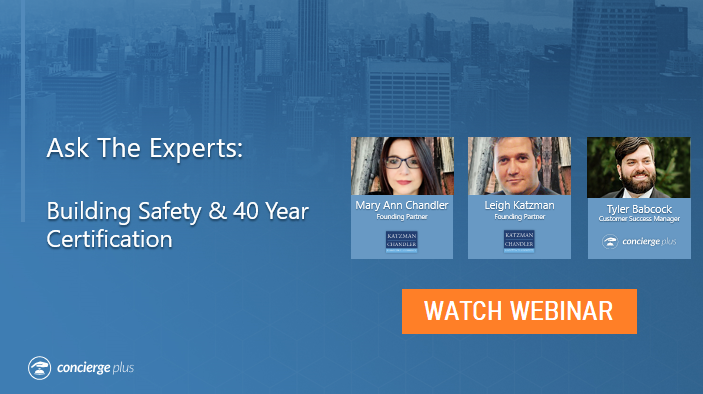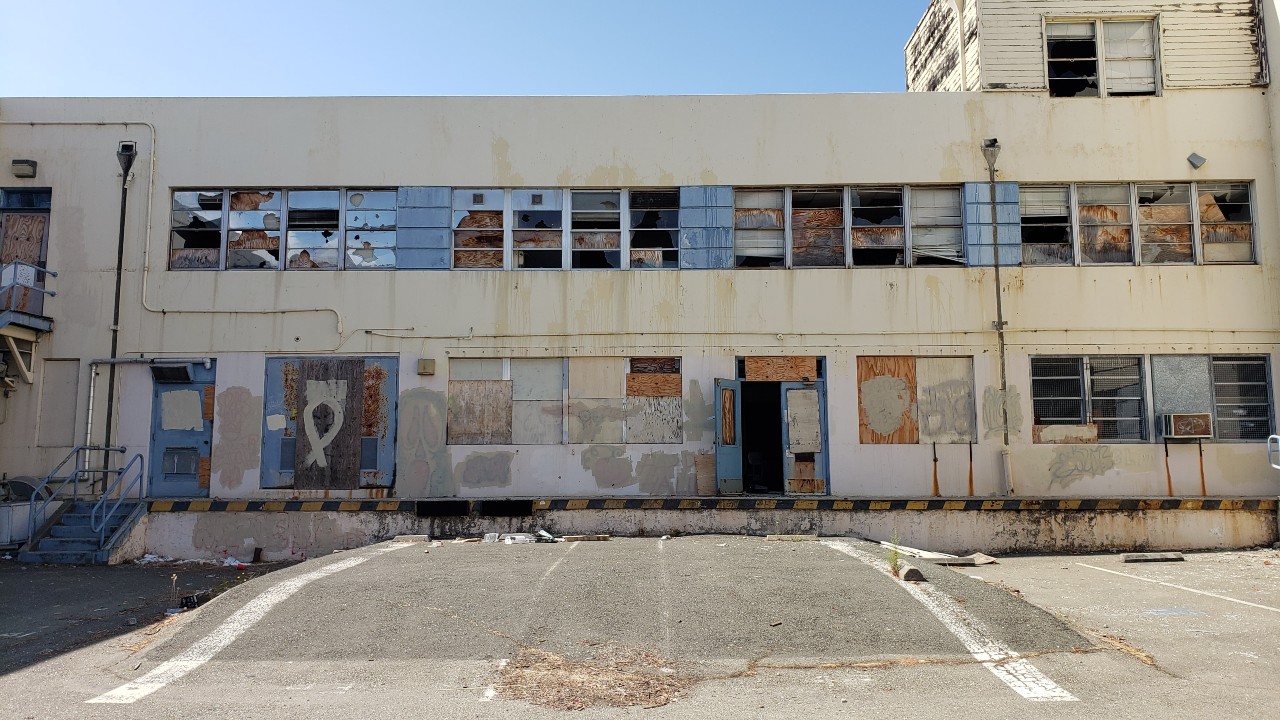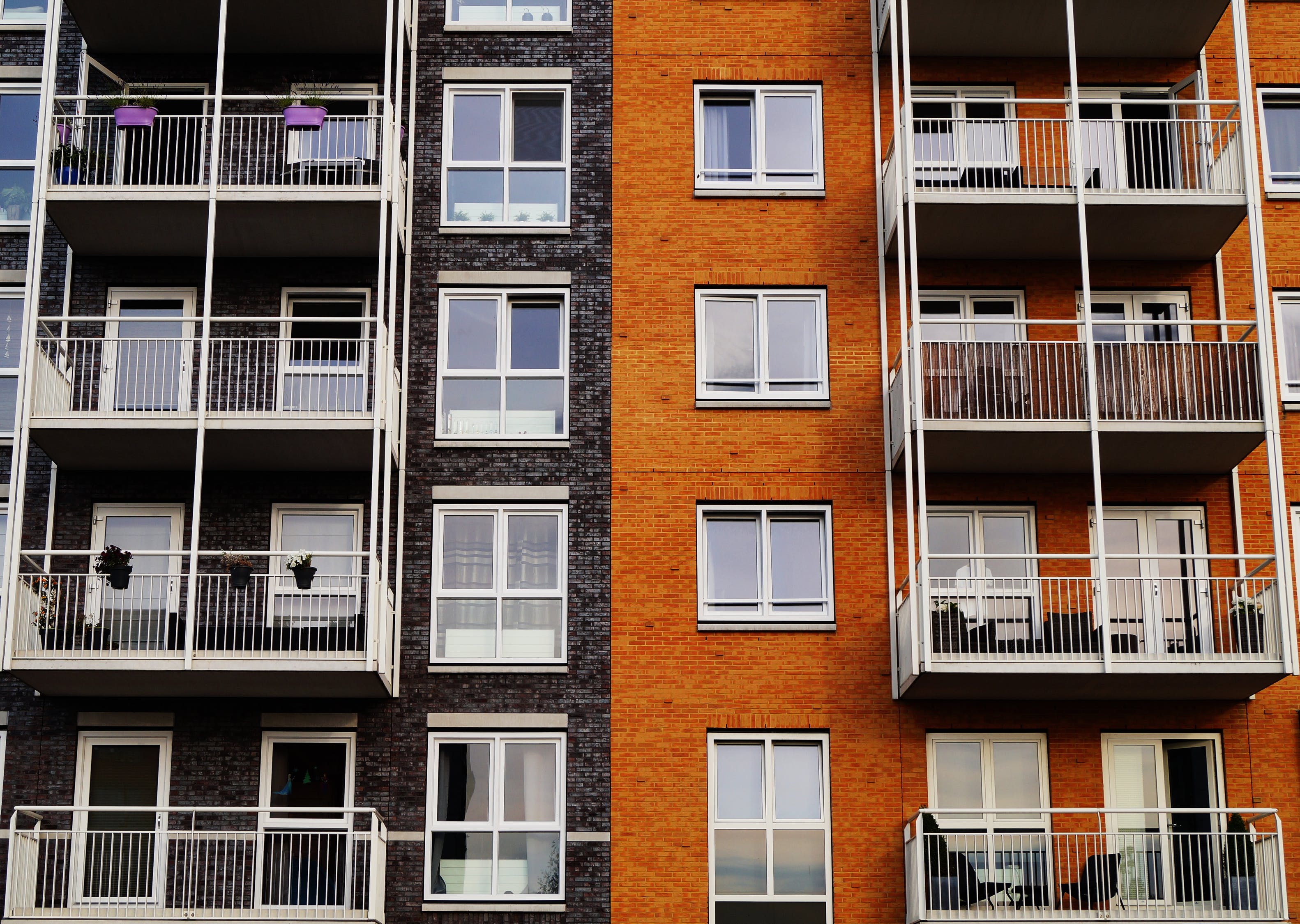Since the tragic collapse of Champlain Tower South in Miami, residents living in older condominiums are concerned about the safety of their own buildings. Condo lawyers across the country are reporting an increase in questions related to building safety.
One thing is certain: Standards of practice are coming under scrutiny, especially in Florida where a task force has been created to investigate Florida’s laws surrounding condominiums. The task force is also to make recommendations for legal reforms to the governor’s office and state legislature.
What should Community Associations be doing proactively for building safety issues and inspections?
First, board members should move away from a ‘what is in my best interest’ to ‘what is in the best interest for the association’ mindset. Residents want to pay the lowest condo fees possible and board members are often elected because of their promise to keep the condo fees down. Once elected, condo members are under pressure from residents to keep costs down, or else they might have to step down. However, mitigating risk (and planning for it) are just one of the many factors that go into a community’s condo fees, which include emergency funds.
Emergency funds fall under the category of “contingency fees” and cover things like unexpected upkeep, repairs, and of course, disaster repair and safety.
Building deterioration is constant and expensive, however it is predictable. Unlike rent, condo fees are not a profit source for the building and the board should be setting aside funds on an ongoing basis to offset that deterioration.
It is important that the board itself understand why they have to spend that much money on inspections and repair and then convince unit owners of the same.
Special assessments are expensive
Once elected, board members should find out when a reserve study has been done, and whether it has been longer than their building code, or statutes, or their declaration permit. They should bring this up during their board meeting and ensure the budget is up to date.
With any maintenance, even like a single-family home, the sooner you fix those little issues as they arise, the easier it is to pay for that. The longer you wait, the most significant it gets (and) the more costly it gets.
Unfortunately, conducting a reserve study is often neglected. According to Kevin Bobb, CEO and reserve specialist with Building Reserves Inc. only about 30% to 40% of the HOAs in the country have conducted a professional reserve study, which can cost from $2,500 for a smaller building up to $15,000 to $20,000 for larger buildings.
According to Evan McKenzie, author of two books on condo and homeowner associations, at least 1/3 of condo associations don’t have enough money put aside for reserves. Condos with insufficient money in reserve are likely to defer important building maintenance. For associations that are not setting aside enough money, a large special assessment is often the only option, but getting all the owners to appreciate the need to implement one is often difficult, especially as special assessments are expensive.
According to Robert Nordlund, the CEO of Association Reserves, condominium associations should be putting aside at least 25 percent of their annual budgets into savings for repairs.
More financial transparency is needed
Because of what happened to the Champlain Tower South Condominium Association, the market in Miami is focused on engineering inspection reports from older towers, which are required by Florida State to get recertified every 40 years. This means that when a building in Miami-Dade or Broward County celebrates its 40th birthday, it must be recertified by an engineer or architect to ensure its structural and electrical safety (after the 40-year mark, buildings must also be recertified every ten years thereafter).
In general, board members should always rely on expert advice from engineers who should be the driving force behind how long one can wait with maintenance activities and how far one can keep pushing it down the road.
As of now, only California and Miami-Dade and Broward County in Florida require condo associations to conduct structural inspections of aging buildings. This may soon change as many condo lawyers are now predicting enforcement rules on reserves, structural inspections of buildings, and financial transparency for residents and even prospective condo buyers throughout the country.
What we may see in the future is prospective condo buyers asking for information on capital expenditure with regards to structural/safety issues. They may want to see the structural engineering reports and see if there is a plan for building maintenance. They may want to know what they are expected to pay in the future. We live in an economic environment where there's inflation every year, and so if a board isn't raising the homeowner assessments every year, then that's a tipoff that something is wrong. A condo meeting minutes could be requested by the buyer’s lawyer that shows that the board has been discussing inspections and building maintenance.
How Concierge Plus helps with transparency
Unit owners have always wanted to know what their boards are up to, and after the tragic condo collapse in Miami, they may particularly ask for the board’s plan on risk mitigation.
Board members can use Concierge Plus as a platform for keeping residents in the loop with regards to anything related to building maintenance. Management and the Board can send out notices of upcoming meetings using the Announcements module (as well as posting those events on the Community Calendar). Concierge Plus announcements can be delivered to residents by email, SMS, or even through an automated phone call based on the resident’s opt-in preferences.
Important information that is presented and discussed, such as a Reserve Study, can be shared with unit owners in the File Sharing feature, a password-protected repository for documents and files. File Sharing is a great place to store articles of incorporation, meeting minutes, rules and regulations, and other important information.
A summary of the board meeting can also be sent to all unit owners via the Newsletter feature along with other important information.
The Discussion Forum, which can be moderated, may provide a way to allow residents and staff to communicate about various topics. The forum offers all residents to contribute even if they are not able to attend a scheduled meeting on any topic. The Discussion Forum is a great tool to increase resident engagement and for residents to discuss important matters, such as their association’s current reserve or plan for risk mitigation.
Association Management & Staff can utilize Concierge Plus to keep track of maintenance on common equipment or elements. Tasks can be assigned to perform and log regular maintenance of equipment and common areas. The Maintenance history can include copies of any inspection reports, purchase receipts and warranty information, photos or video files documenting the condition of any facility, and more.
By using a resident experience management solution such as Concierge Plus, any community can quickly and easily keep its residents informed of the status of their property and keep critical information securely stored and organized for when they might need it most.
Webinar: Ask The Experts: Building Safety & 40 Year Certification - An Open Format Question and Answer Session
We recently held a webinar with our friends at Katzman Chandler in which attendees asked questions about building safety and the 40 year certification.
We also went through features that allow Board Members to be more transparent with regards to their plan on risk mitigation.





Share This Post